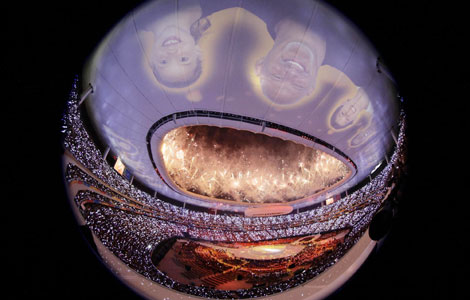China's auto sales rebound in September
Updated: 2011-10-15 19:14
(Xinhua)
|
|||||||||||
BEIJING - China's September auto sales rebounded by 22.7 percent month-on-month thanks to subsidies for energy-saving vehicles, the nation's auto information association said on Saturday.
Statistics from the National Passenger Car Information Exchange Association showed that output of passenger cars, including minibuses, rose 13.4 percent month-on-month to 1.26 million units in September, with sales of nearly 1.28 million units.
Experts attributed the increase to the government's subsidies for energy-saving vehicles.
The subsidy policy, introduced in June of last year, provides subsidies for vehicles within a certain weight range that have a maximum fuel consumption of 6.9 liters per 100 km. Customers can receive a 3,000-yuan ($470.2) subsidy for every car they purchase that falls within the specifications.
The policy led to a sales boom, with most automakers posting positive growth in September. Ford China's sales soared by more than 40 percent month-on-month, surpassing those of Volkswagen China and General Motors China.
BYD's September sales exceeded 38,000 units, compared to about 30,000 on average for each of the first eight months of this year. Chery Automobile announced global sales of 61,390 units in September, up 33 percent from August.
The government has raised the threshold for obtaining the subsidies in a bid to encourage automakers to increase green-technology investment and reduce oil consumption. As of October 1, energy-saving cars weighing between 1,205 and 1,320 kg should consume no more than 6.3 liters of fuel per 100 km in order to qualify for the subsidy.
"About 90 percent of vehicles lost their subsidy status, so the market craze will disappear in the fourth quarter," said Rao Da, secretary-general of the National Passenger Car Information Exchange Association.
Rao said he expects a decline in the auto market in the fourth quarter, largely due to the policy change.
Hot Topics
Libya conflict, Gaddafi, Oil spill, Palace Museum scandal, Inflation, Japan's new PM, Trapped miners, Mooncake tax, Weekly photos, Hurricane Irene
Editor's Picks

|

|

|

|

|

|






